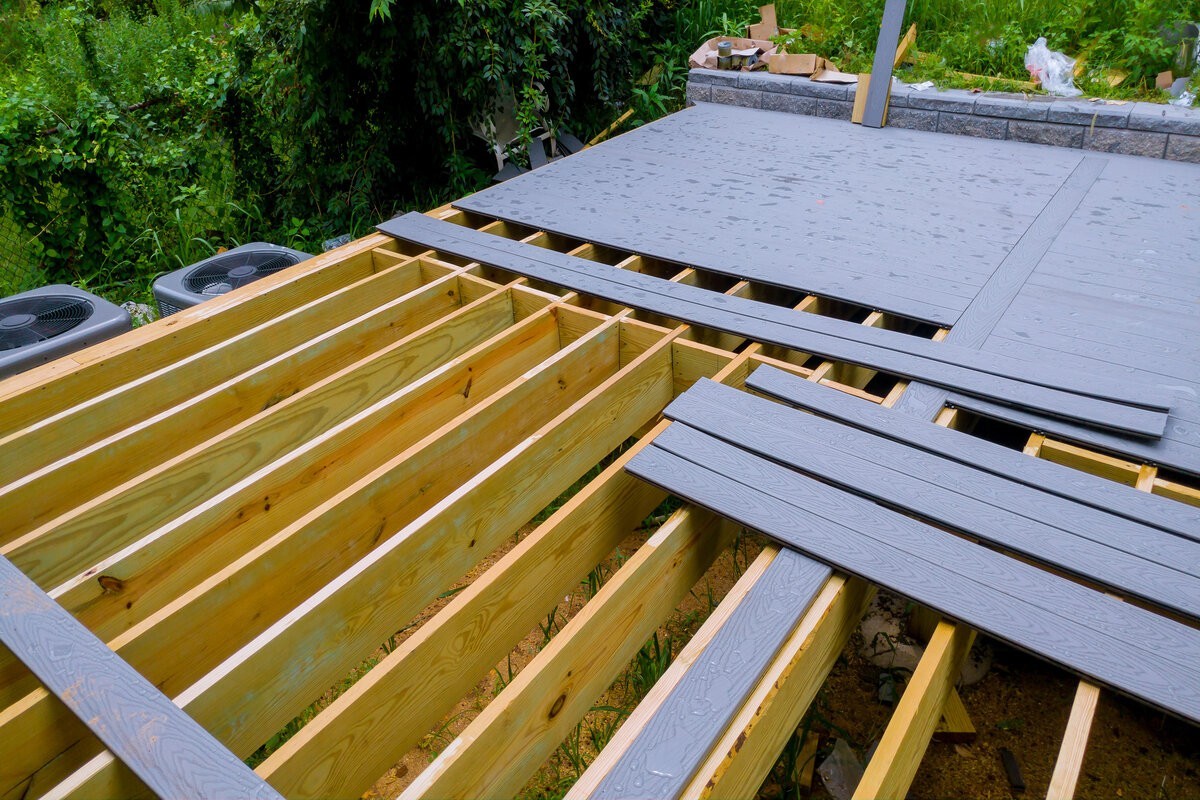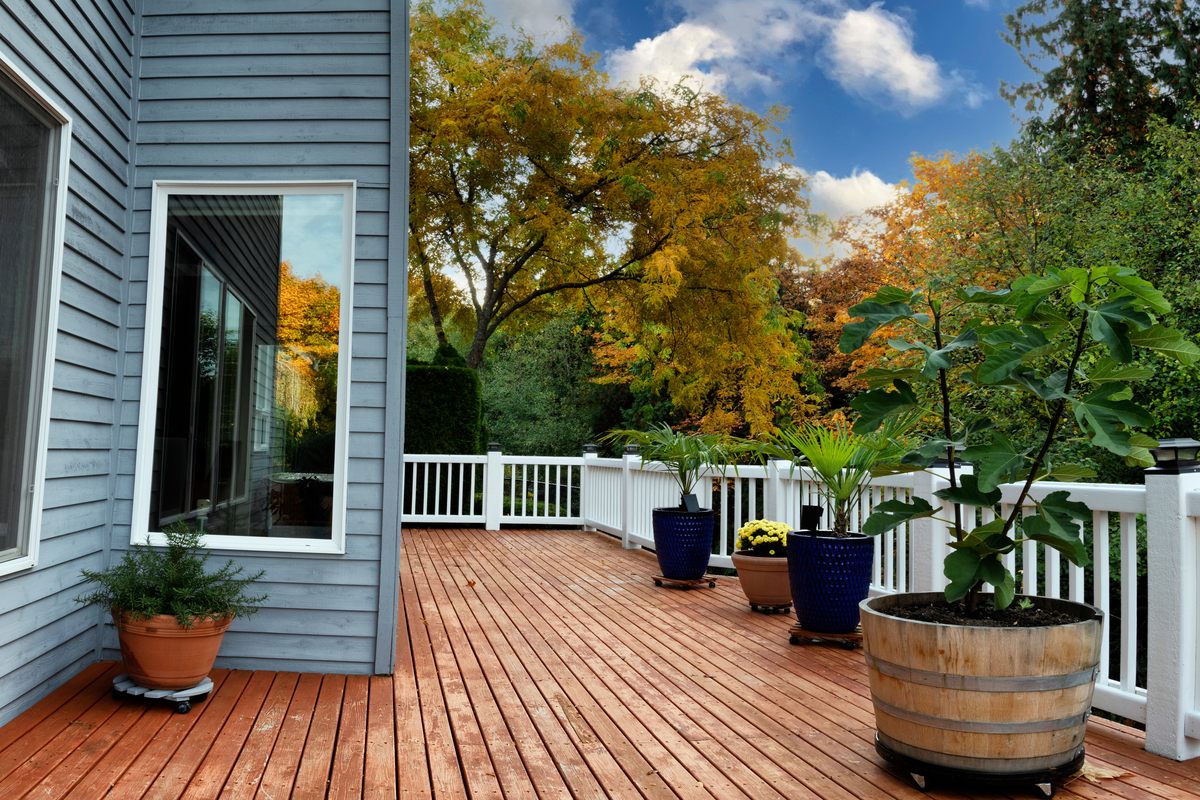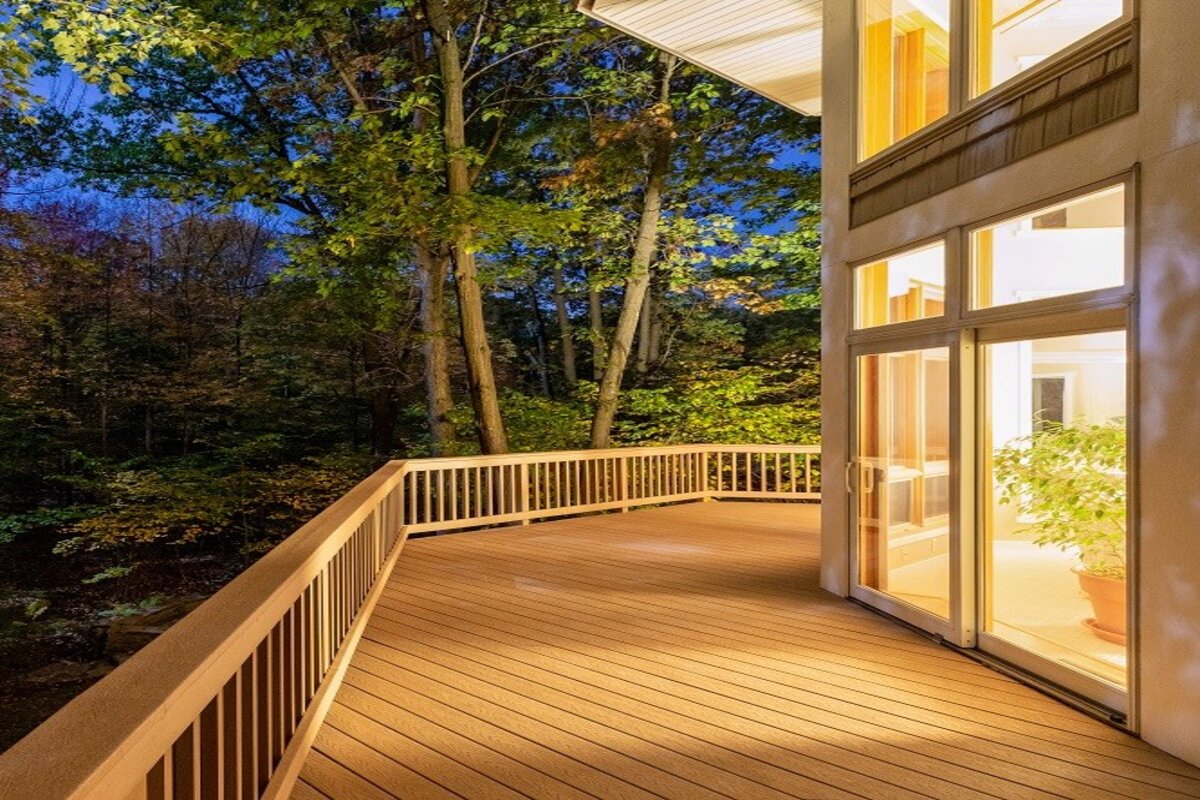Composite decking has become a popular choice for outdoor spaces, offering durability and low maintenance compared to traditional wood decking. However, one common concern among homeowners is whether composite decking gets hot in the sun. Let’s explore this topic, comparing the heat properties of composite decking with wood decking and providing practical tips for enjoying your outdoor space comfortably.
The Heat Factor: Does Composite Decking Get Hot?
Composite decking does indeed get hot in the sun, much like wood decking. When exposed to direct sunlight, composite decking absorbs and retains heat, causing it to become warm to the touch. However, it’s important to note that composite decking is not so hot that it becomes unbearable to walk on. Manufacturers wouldn’t sell a product that rendered outdoor spaces unusable during sunny days.
Understanding the Heat Retention of Composite Decking
Composite decking, being denser than natural wood, tends to retain heat for longer periods of time. This means that on exceptionally hot days, the surface of composite decking can become warmer compared to wood decking. Factors such as the deck’s exposure to sunlight, its color, and the surrounding environment contribute to how hot it gets.
Comparing Composite Decking to Wood Decking in Terms of Heat
While both composite and wood decking can get hot in the sun, there are differences in how they dissipate heat. Wood decking, being less dense than composite decking, may dissipate heat more efficiently. However, this doesn’t necessarily mean that wood decking remains cooler overall. On scorching days, both types of decking can reach uncomfortable temperatures.
Considering Alternatives for High Sunlight Exposure
For areas with intense sunlight exposure, such as around pools or in regions with hot climates, alternative decking materials may be worth considering. PVC decking, for instance, dissipates heat faster than traditional composite decking due to its solid plastic composition. PVC decking is also resistant to rot and mold, making it an excellent choice for humid environments.
Tips for Enjoying Your Composite Deck in the Sun
Despite the potential for composite decking to get hot in the sun, there are several strategies you can employ to maximize comfort:
- Choose Lighter Colors: Opt for lighter-colored composite decking, as lighter hues tend to absorb less heat than darker ones.
- Provide Shade: Install umbrellas, pergolas, or awnings over your deck to create shaded areas where you can escape the direct sunlight.
- Use Outdoor Rugs: Place outdoor rugs or mats on your deck surface to minimize direct contact with hot decking material.
- Time Your Outdoor Activities: Schedule outdoor activities during cooler times of the day, such as early morning or late evening, to avoid peak sun exposure.
- Consider Alternative Materials: If heat retention is a significant concern, explore alternative decking materials such as PVC decking that offer superior heat dissipation properties.
In Summary
While composite decking can indeed get hot in the sun, it remains a popular choice for outdoor spaces due to its durability and low maintenance requirements. By understanding how heat affects composite decking and implementing mitigation strategies, you can enjoy your deck comfortably even on sunny days. If you have specific concerns or questions about decking materials, don’t hesitate to contact us for personalized assistance.






